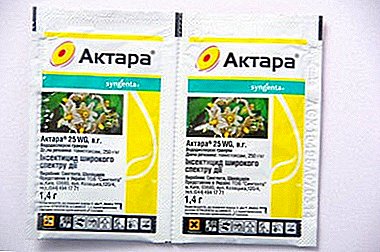
The burning ginger root has long been known for its beneficial properties. He is credited with the ability to remove those extra pounds and improve overall health. Ginger root is used not only in cooking: it is widely used in traditional medicine.
The composition of this burning spice contains many biologically active substances and essential oils that have a negative impact on the human body, so it has many contraindications, which will be discussed in this article.
Properties of plants that provide contraindications
 Spice has the richest chemical composition, for which it is considered extremely valuable to health. However, not all people are equally useful ginger root, on the contrary, for many members of mankind eating a stinging root in food can be a health hazard.
Spice has the richest chemical composition, for which it is considered extremely valuable to health. However, not all people are equally useful ginger root, on the contrary, for many members of mankind eating a stinging root in food can be a health hazard.
The reason for contraindications lies in the organic compounds contained in the spice:
- Gingerol. This compound is concentrated in large quantities at the root of the plant. It is this substance that gives spices its unique taste and aroma. Gingerol is not yet fully understood, but some information about its effects on the body is already available: the substance can cause severe allergies in the form of skin redness and itching, and also irritates the mucous membranes of the digestive tract organs, followed by diarrhea and dehydration.
- Essential oils. Aromatic compounds have a pronounced smell and taste. They are able to destroy both harmful and necessary for normal digestion of bacteria in the intestine. Because of such an excessive antimicrobial effect on the body, ginger is contraindicated in people after taking a course of antibiotics and surgery, as in both cases there is a loss of their own healthy microflora.
Also, the essential oils of ginger irritate the mucous membranes of the stomach and intestines and can even disrupt the integrity of the inner wall of the stomach.
- Zineol. This organic compound has a weak toxic effect, and with the excessive use of ginger tea can cause poisoning. Also this substance worsens the state of health in case of diabetes mellitus, diseases of the liver and kidneys, gastritis and stomach ulcers.
- Compound combination. The above substances have their own contraindications, but their combination can also be detrimental to health: these compounds provoke an active separation of bile in the gallbladder and, at the same time, the movement of stones; excessively increase the activity of liver cells, which is dangerous in some of its diseases; increase blood circulation throughout the body, which can cause internal bleeding; promote active growth of malignant tumors.
Eating plants in different situations
Sometimes the question arises: is it possible to use ginger in a given situation, for example, for gout or psoriasis, when there are no strict contraindications for the use of the remedy, is it possible to use the healing action of the root for treatment?
Who can?
 Gout. It is believed that in the inflammation of the joints, the use of ginger tea is extremely useful. Strong root tea inhibits inflammatory processes in the body and eliminates joint pain in gout, and the minerals that ginger is rich in strengthen bones and connective tissues.
Gout. It is believed that in the inflammation of the joints, the use of ginger tea is extremely useful. Strong root tea inhibits inflammatory processes in the body and eliminates joint pain in gout, and the minerals that ginger is rich in strengthen bones and connective tissues.- With psoriasis. It is possible to cure this disease with the help of a well-designed diet. Ginger allows you to excrete toxins of any origin and, thereby, helps to cleanse the skin. With psoriasis, you can eat spicy vegetables exclusively fresh.
- With mild cold. Runny nose and sore throat are treated with ginger tea. This folk remedy fights in three directions at once: treats inflammation, improves immunity and fights against viruses and pathogenic bacteria. You can drink spiced tea from the first day of a cold and without restrictions.
Allowed, but with restrictions
Sometimes people ask: is it possible to drink ginger decoction at night, use the product with hemorrhoids and increased pressure, is there a strict ban on the use of the product?
- For the night. Ginger and its broth gives energy and invigorates, so it is not recommended to use in the evening time of the day. The only exceptions are night shifts at work: ginger tea will give strength and vitality no worse than a cup of strong coffee. You can eat ginger for the night only if a person does not intend to go to bed in the next 3-4 hours.
- With hemorrhoids. Spicy root has an antiseptic, analgesic, healing and anti-inflammatory properties that help to facilitate the flow of hemorrhoids. However, ginger in this disease should be used with caution: if there is a tendency for hemorrhoids to bleed, the use of ginger should be limited or even excluded. The decision is made by the attending physician.
- With increased pressure. Ginger is able to relax the muscle wall of blood vessels and normalizes the performance of the tonometer. However, taking ginger tea for this purpose is permissible only in the case when the increase in division occurred once due to psychological or physical overstrain. If a person suffers from hypertension for a long time and takes the appropriate medications, it is not recommended to use ginger in any form. It is believed that this spice negates the effect of drugs against pressure.
Who should not be used?
Consider whether it is possible to drink ginger decoction during menstruation and at elevated temperatures?
- With monthly. Ginger tea relaxes muscles and relieves pain in the lower abdomen during menstruation. However, the spice provokes increased blood circulation and a rush of blood to all organs, including the uterus, which can provoke a very abundant separation of menstrual blood. Ginger also reduces blood clotting, which is also fraught with increased bleeding. The use of this root in any form during the period of menstruation is not recommended.
 At a temperature. At high temperatures, it is forbidden to use fresh root and ginger tea: the components of ginger help to further increase body temperature and create an obstacle to lowering it. Ginger is used only for those colds, the course of which is not accompanied by fever.
At a temperature. At high temperatures, it is forbidden to use fresh root and ginger tea: the components of ginger help to further increase body temperature and create an obstacle to lowering it. Ginger is used only for those colds, the course of which is not accompanied by fever.- When taking a large number of drugs. Spice is incompatible with many drugs: it reduces the effect of some, and the effect of others repeatedly. Before the introduction of ginger in the diet should consult with your doctor and find out whether this spice is combined with medications. Ginger is not compatible with drugs for arrhythmias, hypertension, allergies, diabetes, hormonal disorders and many other diseases.
- With gastritis and gastric ulcer. Ginger improves digestion, but in case of problems with the stomach and duodenum, its use is prohibited. Spice components aggravate inflammation and prevent healing of the mucous membranes.
- With diseases of the nervous system. If there are problems with the nervous system, it is forbidden to take ginger and tea based on it, since the effect of it in each specific case is impossible to predict. For people with CNS problems, using the root can lead to lethargy or severe over-stimulation, and also cause heart failure.
Consequences of use despite the ban
There are cases when ginger is included in the composition of dishes or drinks, and a person uses this root by accident or ignorance.
Some consequences of using spicy root despite the ban:
- exacerbation of gallstone and urolithiasis;
- increased internal or menstrual bleeding;
- stomach pains and difficult digestion;
- increased sweating and a rapid increase in body temperature;
- pain in the liver and worsening of its condition;
- weakening or strengthening the effect of medications taken;
- severe allergies.
What if the product is contraindicated, but was eaten?
If a small amount of root has been eaten, and the negative effects have already manifested, it is necessary to adjust the doses of medications taken in order to level the harm from ginger. To do this, you must contact your doctor and consult about this.
How to apply to minimize the possibility of complications
The safest way to eat ginger is to boil it.. In the process of cooking fiber fibers swell, which contributes to the rapid saturation. Essential oils and other biologically active organic compounds lose some of their properties and no longer have such irritating properties on the stomach and other internal organs.
Doctors believe that ginger can be consumed in an amount of not more than 2 g per 1 kg of body weight per day. Spice in powder form can be added to food in an amount of not more than 4 g per day. Tea - no more than 2 liters per day.
In the presence of contraindications, it is necessary either to greatly reduce the dose and frequency of use, or to exclude this product from your diet for good. This decision is made by the attending physician.
Ginger is deservedly considered one of the most healthy foods for humans. but do not eat ginger root without making sure that there are no contraindications. Otherwise, a useful, at first glance, product will cause serious harm to the body.


 Gout. It is believed that in the inflammation of the joints, the use of ginger tea is extremely useful. Strong root tea inhibits inflammatory processes in the body and eliminates joint pain in gout, and the minerals that ginger is rich in strengthen bones and connective tissues.
Gout. It is believed that in the inflammation of the joints, the use of ginger tea is extremely useful. Strong root tea inhibits inflammatory processes in the body and eliminates joint pain in gout, and the minerals that ginger is rich in strengthen bones and connective tissues. At a temperature. At high temperatures, it is forbidden to use fresh root and ginger tea: the components of ginger help to further increase body temperature and create an obstacle to lowering it. Ginger is used only for those colds, the course of which is not accompanied by fever.
At a temperature. At high temperatures, it is forbidden to use fresh root and ginger tea: the components of ginger help to further increase body temperature and create an obstacle to lowering it. Ginger is used only for those colds, the course of which is not accompanied by fever.









